I am an IT professional who completed his Bachelor’s in Information Technology and has since been working in this industry. I’m very well versed in software testing and development, but I always wanted to pursue networking or cybersecurity.
Last year, I finally took a breather and started looking into pathways that can give me a jumpstart into cybersecurity. I knew from the get-go that cybersecurity is a vast field comprising eight major domains catering to different interests and specialties.
Basically, I started looking for beginner courses, online internships, certification exams for beginners, recommended cybersecurity books for new comers, and all the essential resources.
If you search on the web for cybersecurity for beginners, you will find an enormous library of disintegrated information scattered all around the social media platforms, security forums, video platforms, and in blogs. However, there’s not a single blog article that dissects, integrates, and explains the related information about a newcomer’s journey who wants to succeed as a cybersecurity analyst.
The most important thing in Cybersecurity is a combination of understanding the basic concepts and build technical skills.
I will publish a series of guides after this and will try to discuss all different pathways and courses you can take to polish and enhance your skills to succeed in cybersecurity domain.
In this guide I’ll add the steps you must take to successfully start your career as a Cybersecurity analyst. I’ll outline steps to kickstart your career as a cybersecurity analyst, along with insights into the role and benefits of each course and internship mentioned.
Now let’s get started and dip deep into the world of digital safety. Cybersecurity for Beginners is your guide to understanding the essentials, ensuring a secure foundation as you embark on this thrilling journey into safeguarding our digital future.
Understanding the Basics
You have to familiarize yourself with concepts such as encryption, authentication, malware, and firewalls. These are fundamentals concepts in Cybersecurity. People coming from non-technical background might be perplexed at first with these terms but as you delve deeper and persist day-in day-out, you will start to understand the concepts more easily and clearly.
The starting point is cybersecurity courses – whether online or offline. With my busy schedule and reliance on online services, attending offline classes is challenging, which is why I prefer online self-paced courses.
You can also enrol in live courses and boot camps, but you’ll need to invest at least a couple of grand to enrol in these programs.
Cybersecurity analysts must be pragmatic and knowledgeable about common cybersecurity protocols and various online threats.
You don’t have to be a master programmer to succeed in the cybersecurity field, but having a basic understanding of languages like Python and familiarity with the Linux operating system can greatly enhance your cybersecurity skills and could also help you land your first cybersecurity job.
First Step – Find a Online Course that suits you the best
Thousands of courses are available online to kickstart your cybersecurity journey as a fresher. I’ve sifted through 30-40 courses from different institutes and online learning platforms, similar to one another in some aspects while noting differences in their teaching practices.
Every person has their own preparation style and a set schedule to clear exams and get accredited from premier institutions. I like preparing my own notes for revision, which helps me the most during the exam week. For me to succeed in my exams, practical examples and revisions are two main components; without them, I always fail.
Another important thing is quiz practice. I’ve gone through at least 3000 of them, and I seriously love them.
I don’t like video sessions. I ignore most of the video sessions because I’m not a good learner and I find them distracting; it is what it is.
Likewise, you also have to find your strengths and weaknesses and select a course that suits your style and keeps you motivated.
Low cost Cybersecurity Analyst courses for Beginners
Google Cybersecurity Professional Certificate on Coursera will cost you around $300 for 6 months. In India it costs you about $25 per month. I completed the course in 20 days studying over 10 hours per day.
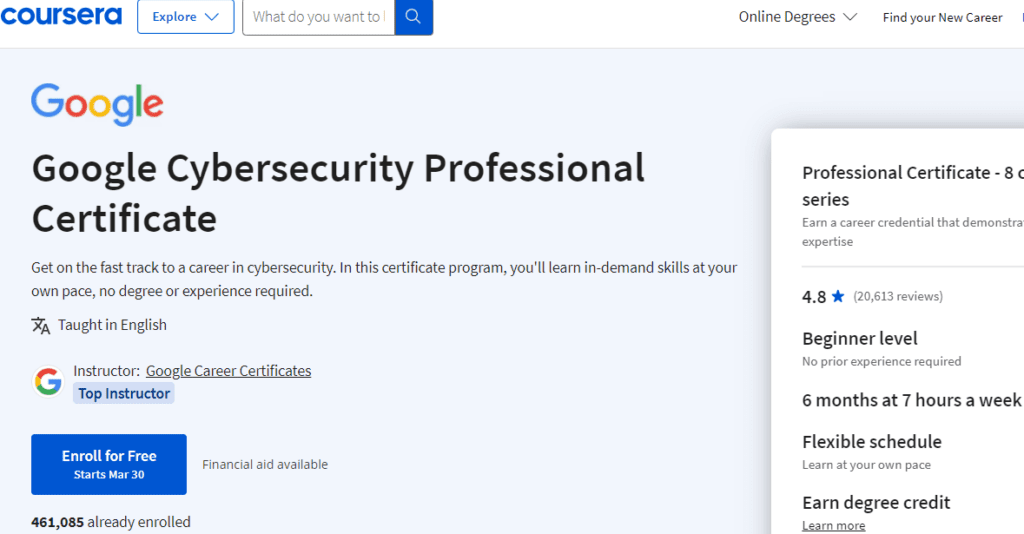
Other course which is very well curated for cybersecurity newbies is IBM Cybersecurity Professional Course on Coursera which costs the same as the google course.
After finishing the course you also get a 25% off coupon for Comptia Security + exam, which I think is a steal.
I also recommend you to buy TOTAL: CompTIA Security+ Certification Course + Exam SY0-701 on Udemy.
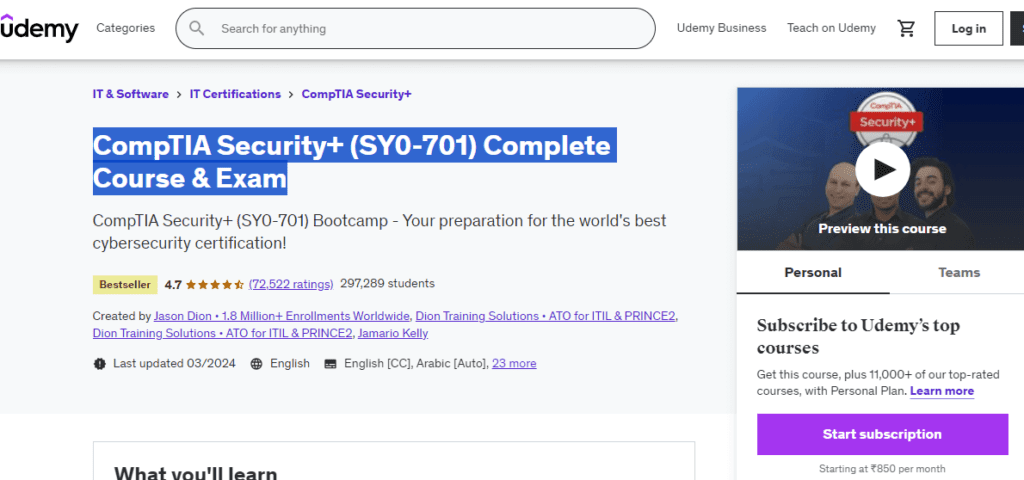
Second step – Get certified
The most recognised cybersecurity certifications for beginners are:
- CompTIA Security+
- CEH from EC-council
- CC from ISC2
- CPENT and CND from EC-council

To start your career in cybersecurity, it is essential for freshers to get an industry-recognized certification, and CompTIA Security+ is one of the most trusted and reputable certifications that you can obtain. I’ll publish a complete series on how to prepare for CompTIA Security+ certification in 15 days and will post the links here.
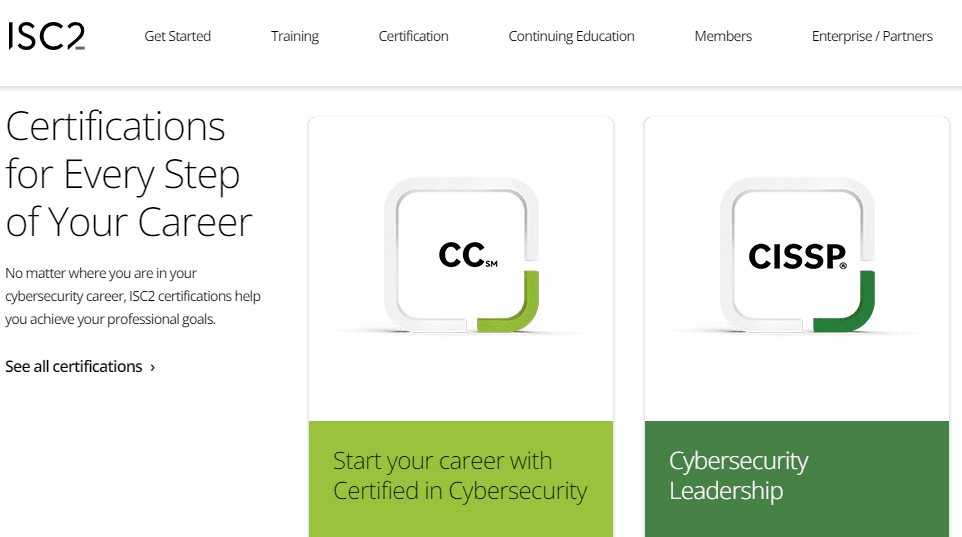
Personally, I started with the Google Cybersecurity course on Coursera and CompTIA Security+ course on Udemy, and it worked for me.
All these courses give you a deep understanding of cybersecurity domains. I highly recommend CompTIA Security+ and CND from Ec-council if you want to jumpstart your career. Also, ISC2 Certified in Cybersecurity certificate costs only about $50 with a coupon code, so I also recommend you to take that certification course.
Third Step – Online Cybersecurity Internship programs
- Mossé Institute’s Cybersecurity Internship
- The forage practical Cybersecurity Job Simulations from big Organisations.
Another important aspect of my preparation was opting for a good online internship program. There are many internship programs online that give you hands-on experience in cybersecurity, but they are quite expensive, so I’ll not discuss those.
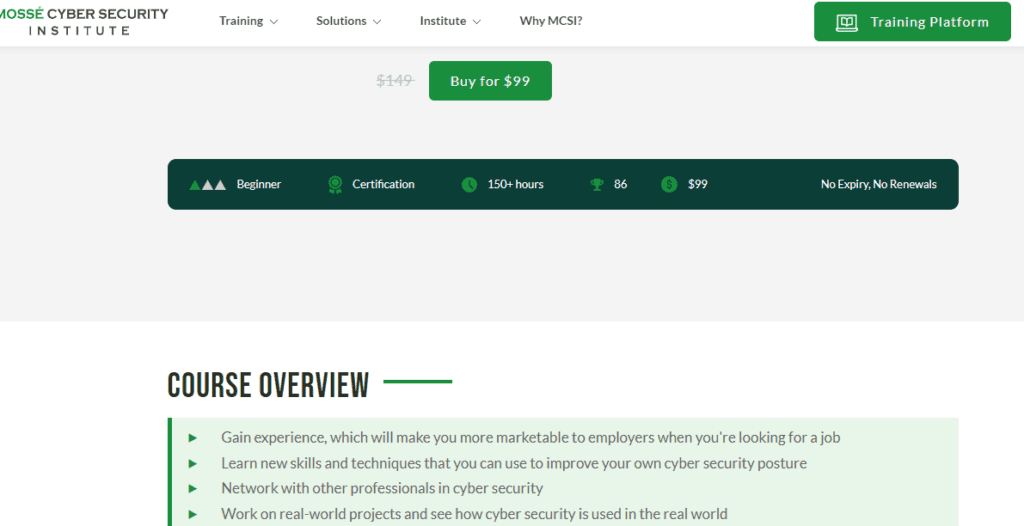
I highly recommend Mossé Institute’s Cybersecurity Internship course priced at only $99. They emphasize mainly on providing practical experience to their students with real-world examples and tasks. Every single cybersecurity task is checked by highly qualified instructors who sternly uphold quality standards.
You can check the best cybersecurity internships guide to get an understanding of their curriculum.
Another contender is The forage, which provides free virtual work experience programs from top organizations. Their platform put forth a real world job simulation related to a cybersecurity domain and participants have to complete assigned tasks and challenges to gain valuable hands-on experience.
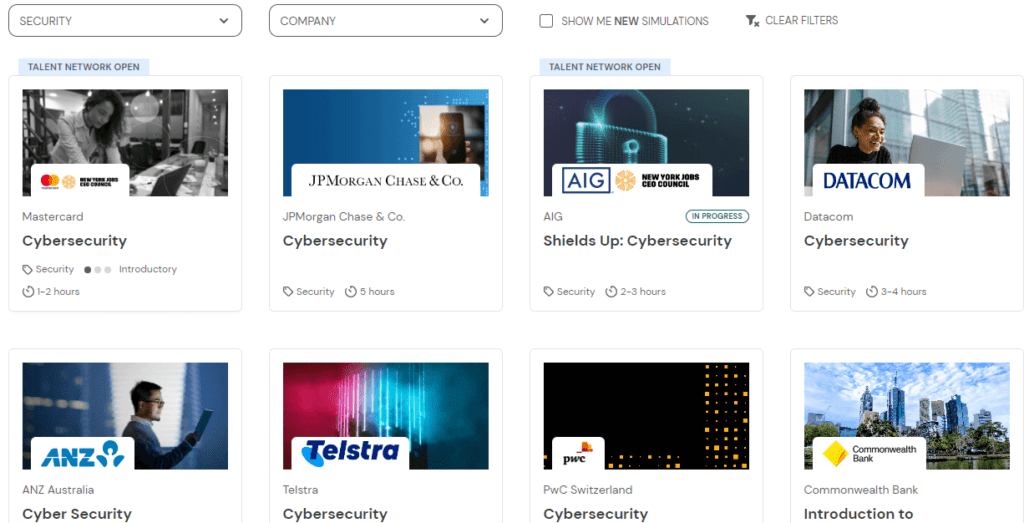
Companies such as Deloitte, AIG, Quantium, KPMG, etc., publish real-world job simulations on the Forage platform.
For example, one task from AIG was: “CISA has just released an alert on a new zero-day vulnerability for Apache Log4j. Research the vulnerability and publish an advisory to affected teams to alert and prevent exploitation.”
Completing this real-world practical job simulation will teach you how to address a vulnerability that may affect Product Development Staging Environment infrastructure.
Step Four – Improve your skills using Cybersecurity tools
Other important things you can do to hone your technical skills are to take part in cybersecurity hackathons, events, and forums.
Websites like Hack The Box, TryHackMe, OverTheWire, VulnHub, PentesterLab, RootMe, Cybrary, Hacker101, and Capture The Flag (CTF) competitions provide you with practical hands-on experience and job simulators.
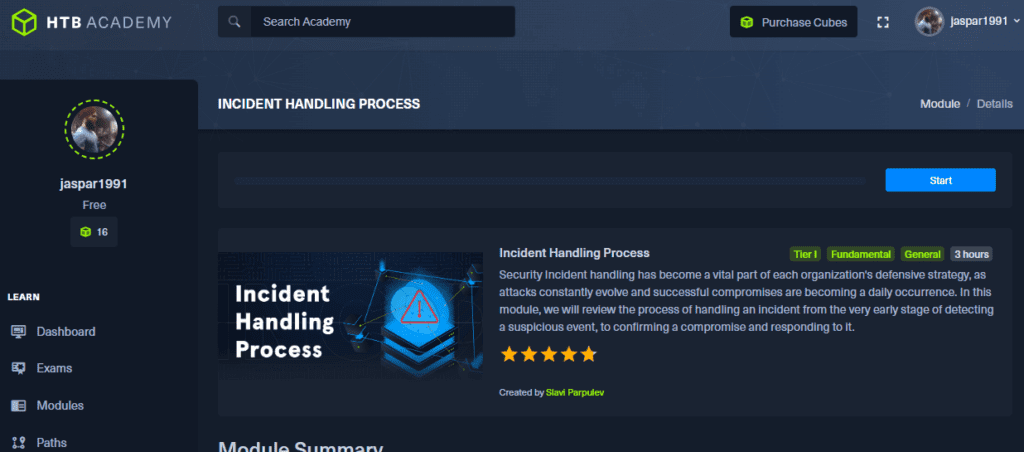
You can check out my Hack The Box guide where I’ve explained the workings of the platform and how you can sharpen your cybersecurity skills using their foundation courses.
Conclusion – Apply for Jobs
After completing the courses, acquiring an accredited certificate, and practicing job simulations, you can build your resume and apply for jobs through online portals or recruiting agencies. In later articles of this series, I’ll share where you can apply for entry-level cybersecurity analyst jobs.
I will add more resources to this guide regularly. If you need any help regarding the certification courses, cybersecurity books, or notes, you can reach me using the contact form in the menu of the blog.